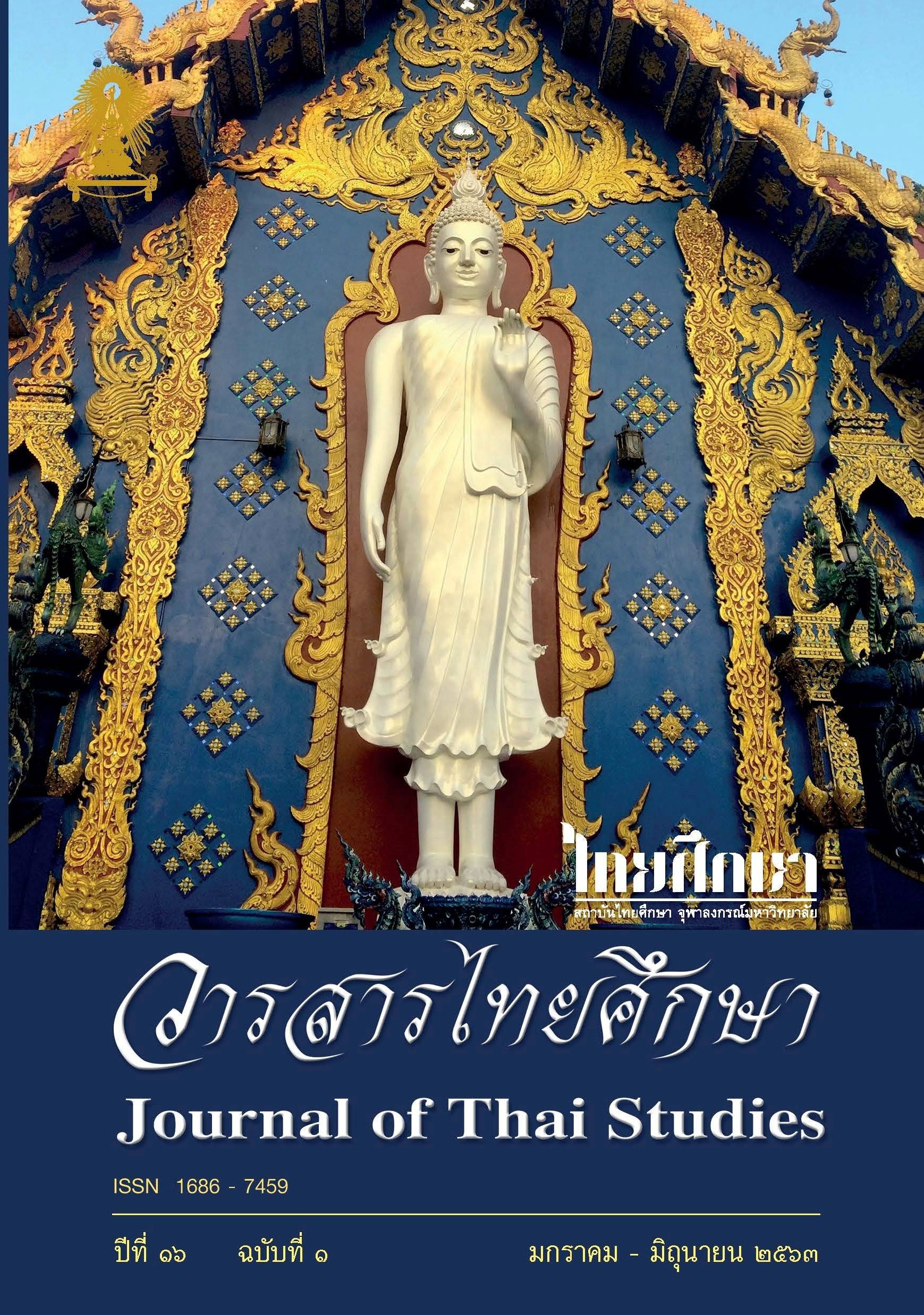Thai Buddhist Modernism: Human Rights Discourse as Formulated by Thai Buddhist Monks and its Historical Development
Main Article Content
Abstract
Critical discourse analysis is a useful method for uncovering the underlying ideologies embedded in discourses and the larger culture that create those discourses. This article aims to study the identity of human rights discourse as formulated by three Thai Buddhist monks and to investigate when such discourse was formed and how the discourse has developed through time, especially when viewed from the perspective of critical discourse analysis. The author attempts to shed light on the discursive strategy through which the modern concept of human rights is linguistically represented in contemporary Thai Buddhist literary works.Trisikkha and puñña are found to count as episteme and reflect the ideological assumptions upon which most contemporary Theravada discourse is based. The first Theravada discourse on human rights emerged during the Cold War when liberalist discourse competed against those of Communism for ideological hegemony. Human rights discourse, as formed by Thai Buddhist monks, is arguably deemed a part of the spectrum of Thai Theravada counter discourse against materialism, consumerism and neo-imperialism. Theravada Buddhist discourse has developed over the past decades to integrate various strands of discursive knowledge of modern disciplines and now has become even more sophisticated in plot, argument and use of intertextualities to differentiate their meaning.
Downloads
Article Details

This work is licensed under a Creative Commons Attribution-NonCommercial-NoDerivatives 4.0 International License.
Journal of Thai studies is licensed under a Creative Commons Attribution-Noncommercial-NoDerivatives4.0 Intenational (CC BY-NC-ND 4.0) licence, unless otherwise stated. Plese read our Policies page for more information on Open Access, copyright and permissions.
References
Barker, C. (2004). The Sage Dictionary of Cultural Studies. London: Sage Publication.
Deal W. & Bell T. (2004). The Theory for Religious Studies. London: Routledge.
Foucault. M. (2006). Archaeology of Knowledge. London: Routledge.
Foucault. M. (1980). Power/Knowledge. New York: Vintage Books.
McMahan. D. (2008). The Making of Buddhist Modernism. Oxford: Oxford University Press.
Phra Dhammapitaka (P.A. Payutto). (2003). Human Rights: Social Harmony or Social Disintegration. Bangkok: Ministry of Foreign Affairs of Thailand
Phutthat bhikkhu. (2013). A tam maya ta pari that. [Unconditioned freedom]. Bangkok: Sukkhaphap cai Publisher.
Vajiramedhi. V. Phra Maha (2008). Panya sakon khue lakprakan sitthimanutsayachon thithae. [Universal wisdom is a guarantee for human rights]. Bangkok: Ministry of Foreign Affairs of Thailand.
Wodak, R & Meyer. M (2016). Methods of Critical Discourse Studies. London: SAGE.


